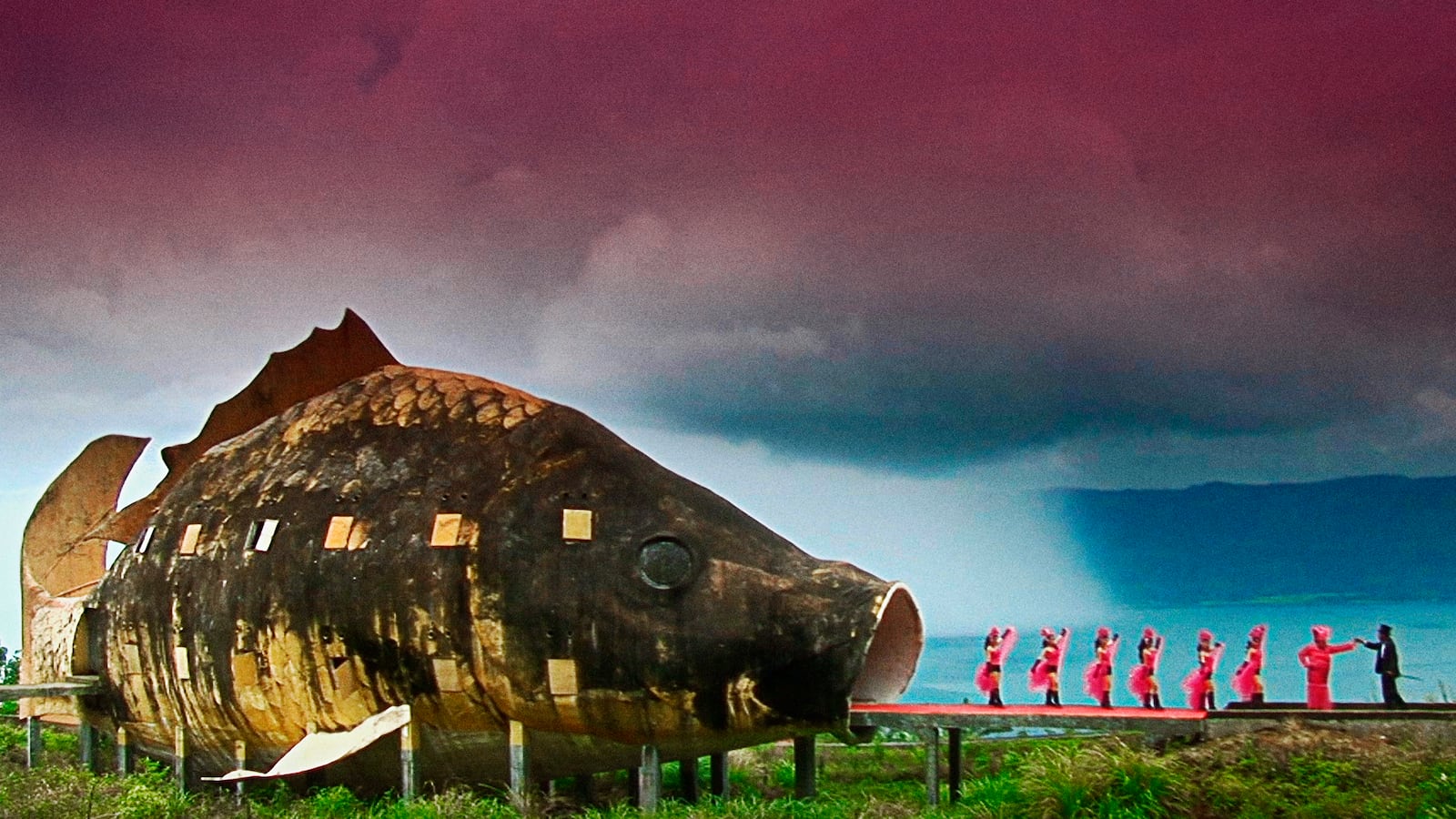In 1965 a military dictatorship seized control of Indonesia, and it presided over the murder of at least half a million alleged communists within a year.

That regime is still in power, and the men who led the death squads—men like Anwar Congo, the “star” of this film—are still very much part of Indonesian political life. Many of them make no effort to hide their past; indeed, they are given to boasting about their youthful, murderous exploits during TV chat shows and political rallies.
This shocking and compelling film is probably the only form of justice the victims of the Indonesian genocide will ever get.
Joshua Oppenheimer, a London-based film director, set out to discover why members of government militia, and gangsters, carried out these depraved acts. Rather than attempt to interrogate the men on camera, he told them he wanted to make a Hollywood-style movie about the death squads of 1965. Under the guise of accuracy, he said he wanted the original killers to star in the movie and asked them to suggest dialogue, scenes, and direction.
Thus Anwar demonstrates exactly how to garrote an innocent peasant who, he admits, isn’t a communist, but simply can’t afford to pay the bribe; he explains why you should always wear thick jeans when killing and reenacts the destruction of a village, including the murder of all of its inhabitants and the burning down of their houses. The vice president of the country, one of Anwar’s many fans, attends filming on that day.
It is during this horrific reenactment that Anwar has his first moment of pause for many years. “I didn’t think it would look so bad,” he says, stunned by the representation of his actions five decades ago.
The film gets increasingly upsetting, and it soon emerges that the brutal oppression of dissenters, especially those of Chinese origin, is not merely a thing of the past. One gangster takes the filmmakers with him as he goes out to extort protection money from Chinese stall holders. A man whose beloved Chinese stepfather was murdered and mutilated in ’65 clearly feels he has no choice but to laugh along as he describes his killing. He then plays his step-father in a scene in which Anwar—dressed as a Hollywood gangster—kills him.

The tables are finally turned on Anwar when he agrees to play a victim himself, being tortured and then garroted under questioning. He gives a bravura physical performance of the act of dying that can only have been born of extensive firsthand experience.
Then the filmmakers show Anwar the rushes and ask him for feedback.
Despite being haunted by nightmares, Anwar has maintained the composure one would expect of war criminal hailed as a national hero throughout, but now he starts to break down.
“I was terrified,” he says, his eyes filling with tears, as he watches the scene of himself being murdered. “Was that what it was like for the people we did that to?”
“No,” says the voice of the director off screen, finally unable to take it anymore. “It was much, much worse for them, because you knew you were just acting in a film, but they knew they were going to die.”
This is a vile, stomach-turning film (I nearly left the cinema twice). It is essential viewing for anyone who wants to understand what happened in Indonesia almost 50 years ago and shows what is going on in that supposedly modern capitalist country today. The credits prove the power that the murderers of 1965 still retain; dozens of Indonesian names, from cameramen to makeup artists, are replaced with one damning word: “anonymous.”




